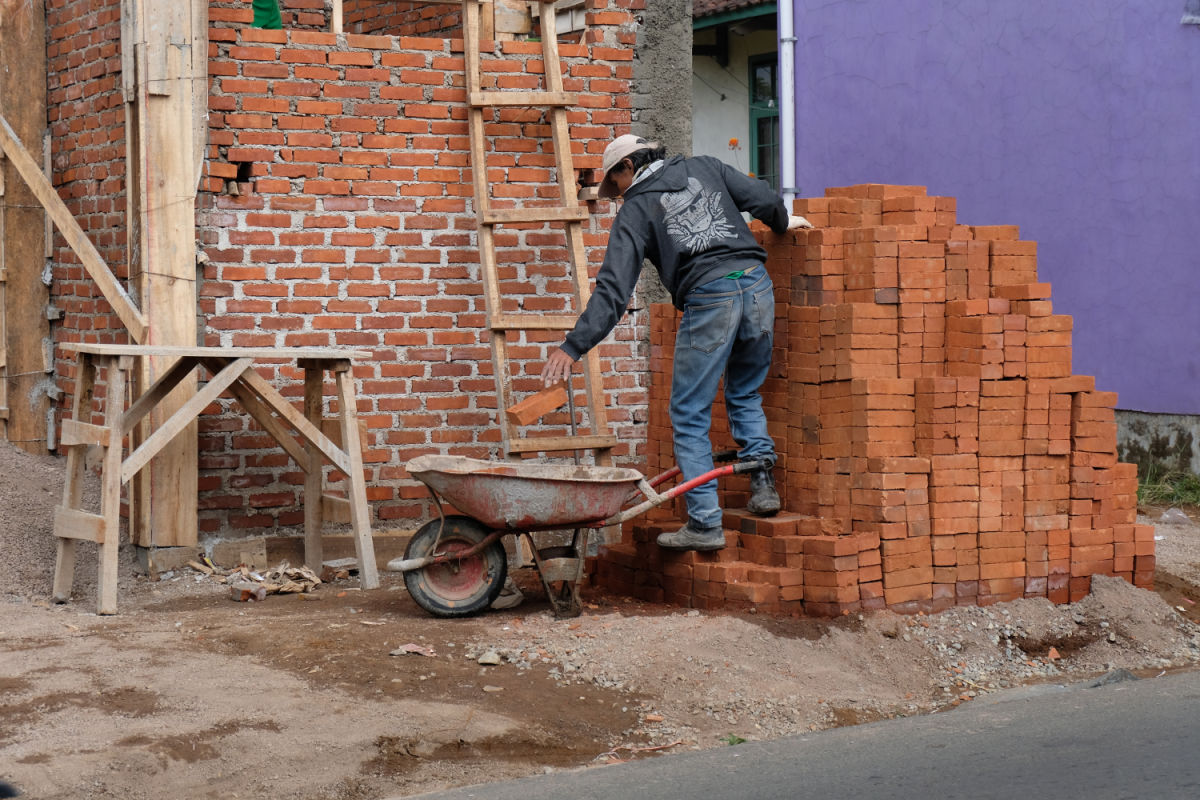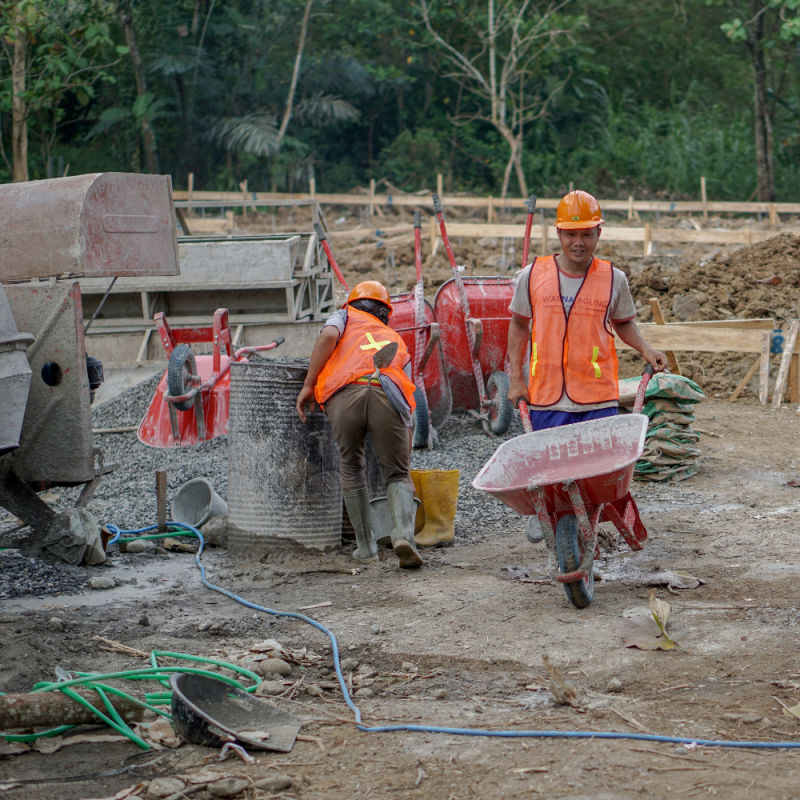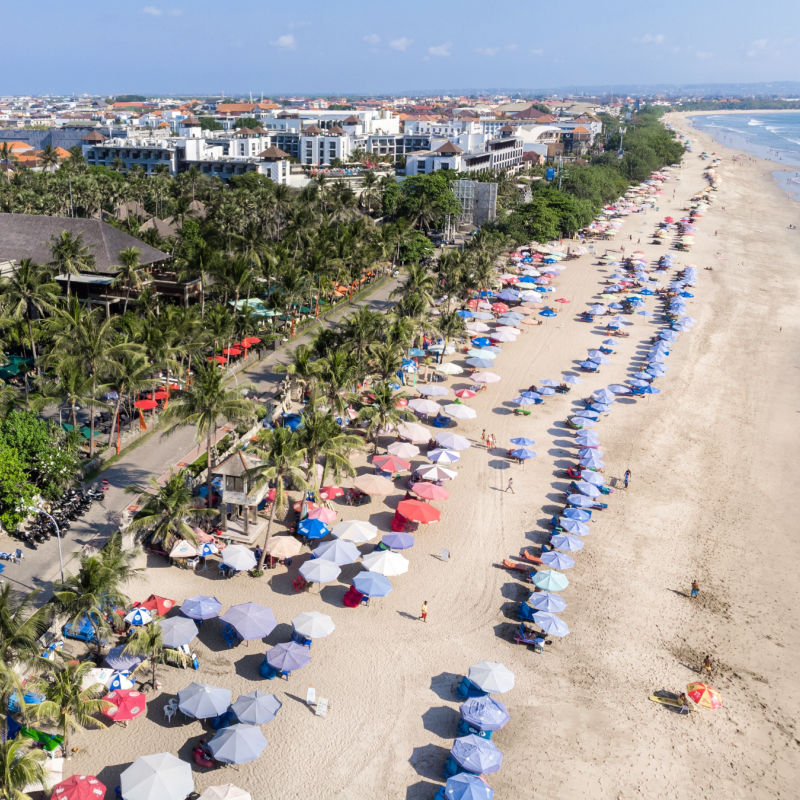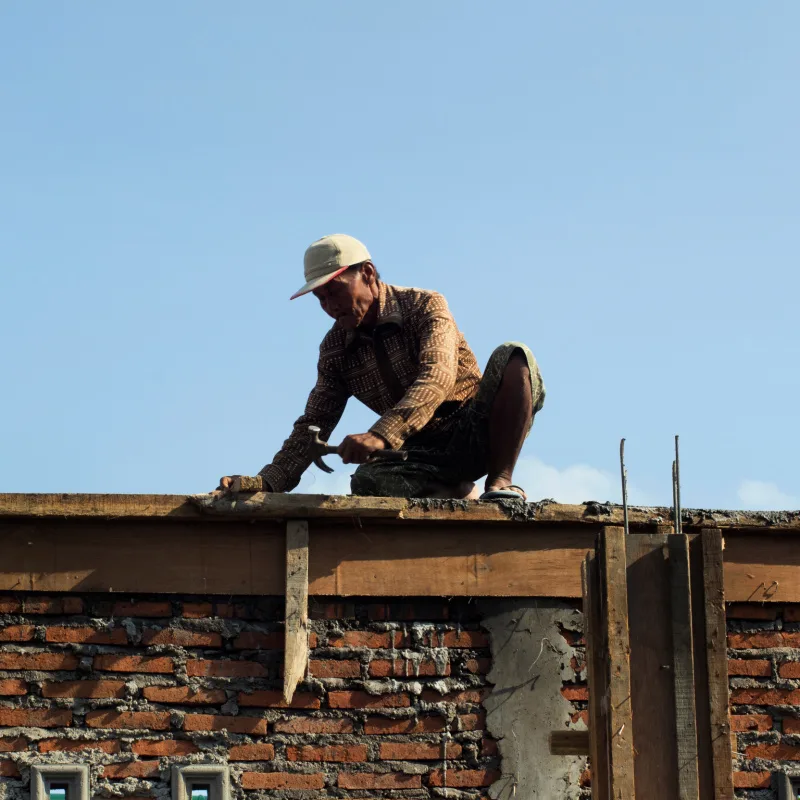Leaders in Indonesia are preparing to introduce new legislation that will ban the development of new hotels, resorts, villas, and some entertainment venues in Bali’s busiest tourism resorts for the next three to five years.
Final drafts have yet to be made public, but leaders have issued new updates regarding when the moratorium will take effect.

The Indonesian Minister for Tourism and Creative Economies, Sandiaga Uno, has confirmed that the moratorium will be introduced in early October 2024.
The new policy is set to help control the rate of growth in the booming resort areas of the south of Bali, including Canggu and Uluwatu.
Speaking to reporters at the Bali International Air Show, Minister Uno said, “We have submitted it, waiting for the schedule from the leadership. Hopefully, it will be done soon. The target is to implement it in early October.”
Minister Uno reiterated that the policy is urgently needed to help reduce the amount of agricultural land that is being turned over into commercial properties, which are largely for use in the tourism sector.
The policy is also anticipated to help directly impact the growing issue of traffic congestion on the island.
The traffic issues in Bali are widespread and felt by almost all visitors to the island, including the Tourism Minister himself.
He even apologized to event attendees for getting caught in traffic during his visit to Bali.
Minister Uno said, “The urgency [for this initiative] is that it seemed very crowded earlier, even when I came here. Sorry, I was a little late because it was very crowded and very congested. The load was almost at the tipping point.”
The moratorium is set to be introduced for three to five years, though the Indonesian Minister for Investment and Maritime Affairs, Luhur Binsar Pandjatan, has stated that the policy could be in effect for up to ten years.
In a press statement delivered earlier this month, Minister Pandjaitan said, “We’ll see later. It could be (valid for) five years, it could be ten years. It just depends on the evaluation.”
He wants to ensure that the policy creates a long-term positive impact for Bali and is not a band-aid solution.
Local residents, community leaders, tourists, and business developers are now waiting with bated breath for the moratorium to be published so as to get a detailed understanding of the scope of the policy that will limit development and the conversion of agricultural landscapes.
It is estimated that Bali is losing an average of 2,000 hectares of prime rice paddies landscape every year; this is in addition to the development of non-rice paddy agricultural plots, coastal landscapes, and existing village common lands.

In statements that first introduced the idea of a moratorium to the public, the Acting Governor of Bali, Sang Made Mahendra Jaya, explained, “The Bali Provincial Government has made a proposal to the Coordinating Minister for Maritime Affairs and Investment to implement a moratorium on the construction of hotels, villas, discos, and beach clubs in the Sarbagita area for one to two years, we want to organize it first.”
The Sarbagita area refers to the main tourism hubs in Denpasar, Badung, Gianyar, and Tabanan, such as Canggu, Seminyak, Legian, Nusa Dua, Sanur, Ubud, Tanah Lot, Kedungu and more.

Acting Governor Jaya has expressed his shock at the rapid development of tourism properties across the central south of Bali and said that so many of these properties are being constructed on newly converted land.
He wants to see a reorganization of the Online Single Submission system so that decisions are granted from within the province, not from authorities outside of the island.

Earlier this week, the Ex-Deputy Governor of Bali and the Head of the Bali Hotels and Restaurants Association, known affectionally as Cok Ace, called for the tourism sector to be assessed by means other than the volume of arrivals.
According to Cok Ace, more is not necessarily better when it comes to tourism in Bali. Bali has been accused of ‘prioritizing growth by any means’, and the negative impacts of this exponential growth are starting to be felt by local communities and tourists too.
Remove All Ads & Unlock All Articles… Sign up for The Bali Sun Premium

Plan Your Bali Holiday:
Book The Best English Speaking Drivers For Airport Transfers & Tours
Choose From Thousands of Bali Hotels, Resorts, and Hostels with Free Cancellation On Most Properties
Book Cheap Flights To Bali
Don’t Forget Travel Insurance That Covers Medical Expenses In Bali
For the latest Bali News & Debate Join our Facebook Community
SUBSCRIBE TO NEW POSTS
Enter your email address to subscribe to The Bali Sun’s latest breaking news, straight to your inbox.
Discover more from The Bali Sun
Subscribe to get the latest posts sent to your email.

Mr Bear Snr
Wednesday 2nd of October 2024
They'll just pay more people more money to circumvent it and backdate the applications from before the enactment date. How do these people get their hands on so much money? 100,000,000Rp is the cash limit into Bali. Doesnt the Goverment track large bank fund transfers?
Bender
Sunday 29th of September 2024
Good. Though I would argue this should have been implemented decades ago. Many parts of Bali have been turned into a giant garbage dump that look more like Los Angeles or New York than a tropical paradise. Given the human population size and density, growth is no longer a good thing (and hasn't been for a very long time).
Anton
Saturday 28th of September 2024
for centuries there have been attempts to control the people. in bali it has never succeeded. even though it seemed so corruptible now with the current technology but in the end it is the ceremonies and everything around it these are more important than everything. bali survives everything. everything comes and goes in the end it is bali that is still standing. and the rice fields will return!!! Bali is everything And always will be 😉
Deb
Saturday 28th of September 2024
I hope this will stop the over development by the Chinese and Russians who build Chinese only and Russian only places. They build huge buildings that take over the surrounding areas.They also don't mix well with others.
James
Sunday 29th of September 2024
@Deb, I know more Russian expats that speak Bahasa Indonesia than I do Ozzies. Also, it is the Balinese who sell the land. Blaming who buys it (whatever the nationality) is therefore irrelevant. Finally, Europeans and people from Australia have been building here for decades, but when someone else does it, they take over areas? Sure.
Randy
Friday 27th of September 2024
Balinese rural, agriculture, religious and peaceful areas are replaced in character by wealthier people and those foreigners running away from the Russian Ukrainian war moving in, improving housing, and attracting new businesses, typically displacing current inhabitants in the process. It is an environmental disaster when land zoning is not set in stone. Bali land zoning divides the lands according to their specific purpose.
Green zone Bali’s agricultural land is designated solely for farming activities and not for property development. Yellow-colored land is designated for homes, apartments, or other types of residential properties and is mostly found in urban and suburban areas of Bali. And so on...
Ni Luh Djelantik has made a point that Bali is the only place we have!! It is hight time for a moratorium period from people investing, building hotels, villas and businesses until future consideration necessitates lifting the suspension. People should take a moment to appreciate the island’s unique cultural and natural heritage.
Exp
Tuesday 1st of October 2024
@Thommo, Astute observation.
Thommo
Saturday 28th of September 2024
@Randy, fully agree with what you say. But the youth/ younger adults of Bali are seduced by tourism, noisy motorbikes, vaping, smartphones, social media and don't aspire or care about the preservation of ricefields or the history and culture. The authorities are corrupt, lacking in accountability and culpable to decades of ignorance and neglect. They can't handle it or ignore the truth. Let's remember that hidden in this wave of unhinged development and greed that many of the balinese even in the south are still wallowing in poverty. Servile to the greed and destruction of theirland and payed peanuts by the elite corrupt developers from their own country. Who saddle up with outsiders greasing their palms.